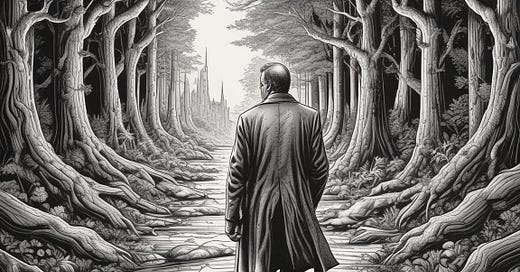“A book worth reading only in childhood is not worth reading even then.”
C.S. Lewis is one of the great thinkers, and he has written much about education. But today I want to share his views on literature from On Stories and Other Essays on Literature, and how to determine if a work of fiction is any good, specifically imaginative literature—i.e., fairy tales, fantasies, science fiction. If you are interested in his views on education, read this post describing his philosophy of education.
The broad-stroke description regarding what is the mark of a good work of fiction according to C.S. Lewis is whether one would read it again. Ultimately, whether a story penetrates the reader’s deeper imagination is difficult to tell, Lewis claims. Thus, whether he “re-reads the same story” is the best way of separating stories that are good from those that simply excite the reader’s emotions.
“If you find that the reader of popular romance—however uneducated a reader, however bad the romances—goes back to his old favourites again and again, then you have pretty good evidence that they are to him a sort of poetry.”
Lewis even goes so far as to assert that a good work of literature must be re-read to fully appreciate it.
“We do not enjoy a story fully at the first reading. Not till the curiosity, the sheer narrative lust, has been given its sop and laid asleep, are we at leisure to savour the real beauties. … Children understand this well when they ask for the same story over and over again, and in the same words. … It is better when you know [what] is coming: free from the shock of actual surprise you can attend better to the intrinsic surprisingness of the peripeteia [i.e., the sudden change of events or circumstances].”
Although Lewis puts forth this simple test for determining whether a work of fiction is good, he does give some key indicators to look for when judging a book. First, good stories are universal and get to the core of what it means to be human.




